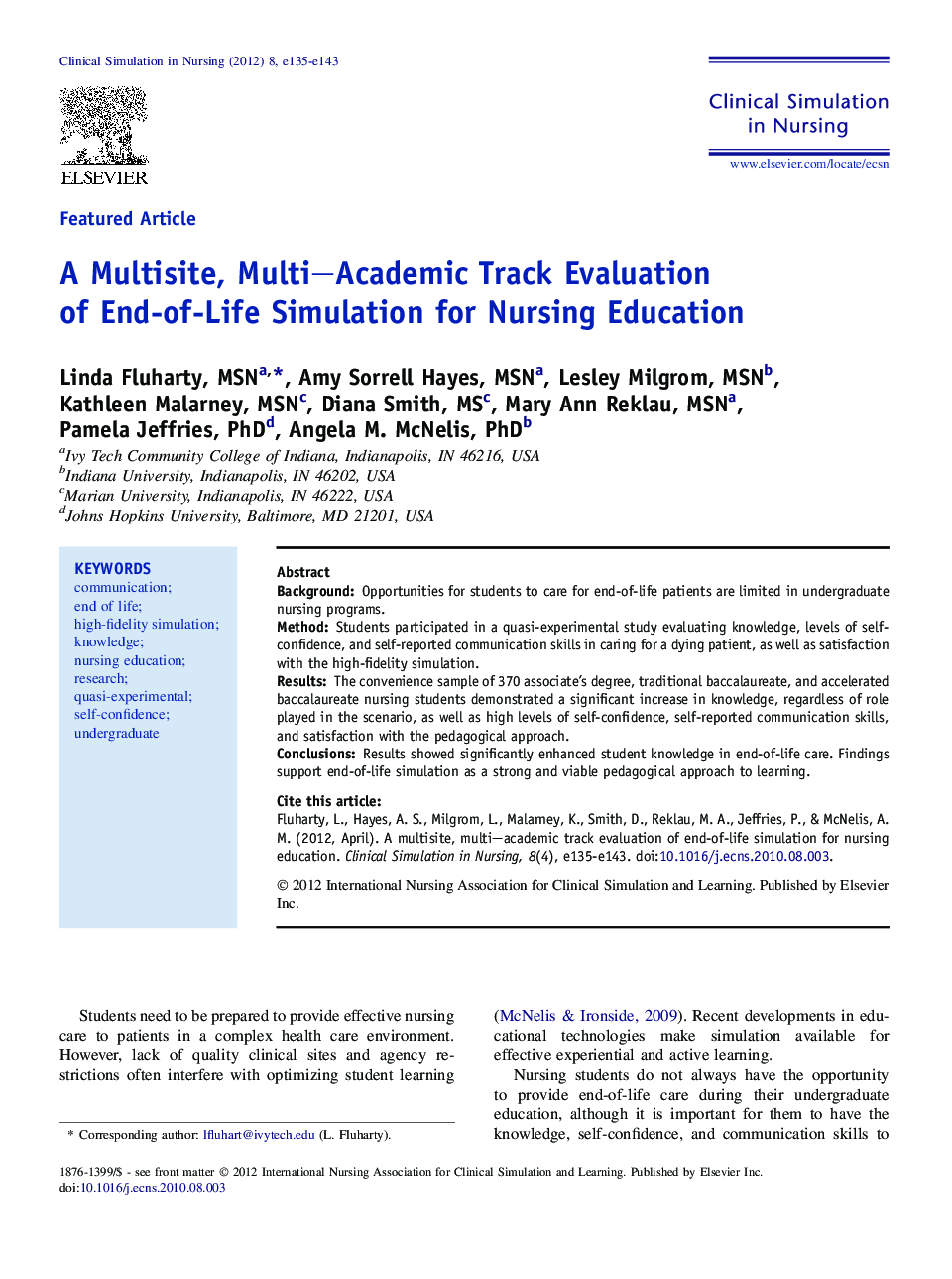| Article ID | Journal | Published Year | Pages | File Type |
|---|---|---|---|---|
| 2646625 | Clinical Simulation in Nursing | 2012 | 9 Pages |
BackgroundOpportunities for students to care for end-of-life patients are limited in undergraduate nursing programs.MethodStudents participated in a quasi-experimental study evaluating knowledge, levels of self-confidence, and self-reported communication skills in caring for a dying patient, as well as satisfaction with the high-fidelity simulation.ResultsThe convenience sample of 370 associate’s degree, traditional baccalaureate, and accelerated baccalaureate nursing students demonstrated a significant increase in knowledge, regardless of role played in the scenario, as well as high levels of self-confidence, self-reported communication skills, and satisfaction with the pedagogical approach.ConclusionsResults showed significantly enhanced student knowledge in end-of-life care. Findings support end-of-life simulation as a strong and viable pedagogical approach to learning.
